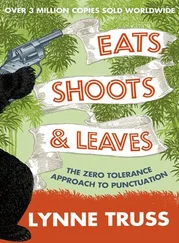Paul Morand - Tender Shoots
Здесь есть возможность читать онлайн «Paul Morand - Tender Shoots» весь текст электронной книги совершенно бесплатно (целиком полную версию без сокращений). В некоторых случаях можно слушать аудио, скачать через торрент в формате fb2 и присутствует краткое содержание. Год выпуска: 2011, Издательство: Pushkin Press, Жанр: Классическая проза, на английском языке. Описание произведения, (предисловие) а так же отзывы посетителей доступны на портале библиотеки ЛибКат.
- Название:Tender Shoots
- Автор:
- Издательство:Pushkin Press
- Жанр:
- Год:2011
- ISBN:нет данных
- Рейтинг книги:5 / 5. Голосов: 1
-
Избранное:Добавить в избранное
- Отзывы:
-
Ваша оценка:
- 100
- 1
- 2
- 3
- 4
- 5
Tender Shoots: краткое содержание, описание и аннотация
Предлагаем к чтению аннотацию, описание, краткое содержание или предисловие (зависит от того, что написал сам автор книги «Tender Shoots»). Если вы не нашли необходимую информацию о книге — напишите в комментариях, мы постараемся отыскать её.
Tender Shoots — читать онлайн бесплатно полную книгу (весь текст) целиком
Ниже представлен текст книги, разбитый по страницам. Система сохранения места последней прочитанной страницы, позволяет с удобством читать онлайн бесплатно книгу «Tender Shoots», без необходимости каждый раз заново искать на чём Вы остановились. Поставьте закладку, и сможете в любой момент перейти на страницу, на которой закончили чтение.
Интервал:
Закладка:
She laughs as she shows them to me:
“Little objects that are of no possible use!”
Still better. Unimaginable little objects, of no antiquity, never sought after, a primitive child’s museum, oddities from lunatic asylums, the collection of a consul rendered anaemic by the tropics. She confesses:
“You know my tastes: broken mechanical toys, burnt milk, steam organs, the smell of priests, black silk corsets with floral patterns and those bouquets of coloured beads made from all the flowers quoted in Shakespeare …”
And I suddenly think of the delirious ravings in Une saison en enfer : “I loved the silly pictures, overdoors, decorations, canvases by mountebanks, signboards …”
Stranger still is her liking for sham.
She prefers the imitation to the thing itself. She enjoys the disappointment she experiences and that of others. When she sees the way other women look at her pearls, she is amused at being able to arouse so much bad feeling at so little cost. She loves this paraphrase of the truth, the modern religion of window dressing, and this latent mockery of the fake, nature made ridiculous, shown to be useless or imperfect. Wearing fancy dress is one of her delights. She disguises her clothes, dyes her carpets, bleaches her hair, paints pictures of her cats. She has thousands of objects around her that are used for other purposes than one might imagine, books that open into boxes, pen-holders that are telescopes, chairs that become tables, tables that turn into screens, and also those countless bits of surprise jewellery that we owe to the bad taste of the Italians or the Japanese.
The shabby suburban shops displaying their filigree and costume jewellery fascinate her. She has not the slightest longing for panther skins, but she cannot tear her gaze from this crude imitation, with its black patches painted on red rabbit fur.
She has put some glass fruit, some crystal balls, in large bowls; but she reserves her affection for those fruits that are here — the oranges gleam with a viscous varnish, alongside celluloid berries, in glassy, over-swollen clusters, with small, sickly leaves. She only likes dwarf cedars when they are dead and she can smear their branches with red lacquer and make feather pistils and tinfoil petals grow there.
“I’m contemplating an artificial garden,” she says. “It would be in the middle of the park. You would arrive there naturally, as though it were the coolest, shadiest spot, and discover sterilised vegetation. You would lie down on moss of that beautiful green that you only find in dyed moss, warm and dusty to the touch. All around there would be beds of coloured beads, tissue paper flowers, and beneath bushes made from glued bits of material, in a smooth glass pool, the motionless frolicking of gutta-percha carp.
Clarissa has a house in town and a house in the country. Our life is spent dashing from one to the other, like a pendulum; they are shared out unequally during the year; one for the dense, brisk winter months, the other for the limpid months of summer. They are not far apart — in the city, by climbing up to the roof terrace, you can make out the country house, perched on the horizon, at the top of the blue hill that, like the well-defined brim of a bowl, marks the outer limits of London.
The first has a noble, self-satisfied atmosphere. Byron lived there. It maintains its standing and, from the pavement and from above, does its best to keep its alignment. The frontage has a severity of line that, were it not for the thought of the myriad eccentricities it conceals, would be boring.
The second, on the other hand, is small and precious, like a neglected piece of Empire furniture left out in a garden. Sunk into its middle is a circular anteroom crowned by a gallery onto which all the bedroom doors open; so that in the morning, from their beds, guests can hurl apples into the bedroom opposite theirs …
Apart from her two Persian cats that sleep by the fireside where they look like cinders, Clarissa has few close friends.
“Clarissa, let’s talk about your friends, if you wish, my companions.”
You are the centre of a whole little world that appears to have its raison d’être solely in you. No more than your trinkets, can we conceive of any other life than the one you impose on us. (For you impose things, Clarissa. You are a tall woman, with decisive actions, a definite face, powerful lungs and an air of authority.)
You do not say:
“What could we do this evening?”
But:
“We’re going to the Alhambra, box six.”
We are your prisoners. Everything draws us back to you. If we are far away, boredom; if we are walking down your street, everything entices us: the large flat button of the door-bell, pleasant to touch, the noise of our footsteps on the marble of the staircase, the parrot’s swear-words, the smell of tracing paper and palette that comes from your boudoir, the cameo on your signet-ring, the mauve veins that encircle your eyes.
None of us has any common bond but you. There is, however, a certain family resemblance between us. We are equally slim and youthful, with bright eyes and red lips. We laugh loudly, knock back our drinks, we never get up before breakfast, we dance farandoles all over the house, but we know how to keep quiet when you play music.
You enjoy bringing us together, paying no heed to staunch friendships, yet you nevertheless detect a different virtue in each one of us and you like him or her because of that — Pamela has mahogany hair, Tom slender wrists, Rafael a pretty face and a talent for playing the banjo; as for me, I go well, you say, with your Chinese drawing room.
Here we are, seated around a table, at Murray’s, for our common pleasure, which is hers. Clarissa dominates us all with her height; she has more sparkle than the women, more self-assurance than the men; the maître d’hôtel naturally goes over to her. We gather around her, happy to be here in this comfortable cellar, in this padded catacomb where pleasure presides. The women in this basement have their nails polished, their faces well painted; you can see their armpits. Couples are dancing, circling around an imaginary axis, wringing out the waltz as if it were a tea towel from which the melody oozes. The men in this basement have their arms in slings, bandaged heads; the Negro music tires them a little, takes them back to the indelible memory of the trench where they fell, of the first glass of water. The waiters, as they serve them, stumble over the crutches that are lying on the floor.
There are others, too, fatter, more florid, drinking Pommery in cider bottles, for it is after ten o’clock — the neutrals. They are Scandinavians, Dutchmen, Americans. They exchange knowing glances and under the tablecloth offer two hundred thousand Mausers which can be delivered straight away by sea off Barcelona, or they take out from their hip pocket samples of all the uniform materials worn by the warring armies. They buy back good-humouredly orders that have been rejected (the Russians will take them for sure), overdue contracts. All the tempests of machine-gun fire that will one day be unleashed on men stem from here. Tom sniggers at this interpretation:
“Very much the latest thing; the very last word,” he says. “The last word of the dying.”
Then, handing one of them a piece of shrapnel recently removed from his head:
“If this may be of use to you again? …” We are five, gathered around a small table on which elbows and plates are touching. Pamela remains wrapped up in her ermine coat, silent, her eyes tired from the beam of the footlights, rouge still on her cheeks, looking wretched. Then she eats her bacon and eggs, lights an amber-tipped cigarette and bursts like a camellia out of her coat, which slips down her arms. Narrow shoulders, what Rafael calls “being built like a soda-water bottle”. She is sad. She says:
Читать дальшеИнтервал:
Закладка:
Похожие книги на «Tender Shoots»
Представляем Вашему вниманию похожие книги на «Tender Shoots» списком для выбора. Мы отобрали схожую по названию и смыслу литературу в надежде предоставить читателям больше вариантов отыскать новые, интересные, ещё непрочитанные произведения.
Обсуждение, отзывы о книге «Tender Shoots» и просто собственные мнения читателей. Оставьте ваши комментарии, напишите, что Вы думаете о произведении, его смысле или главных героях. Укажите что конкретно понравилось, а что нет, и почему Вы так считаете.












